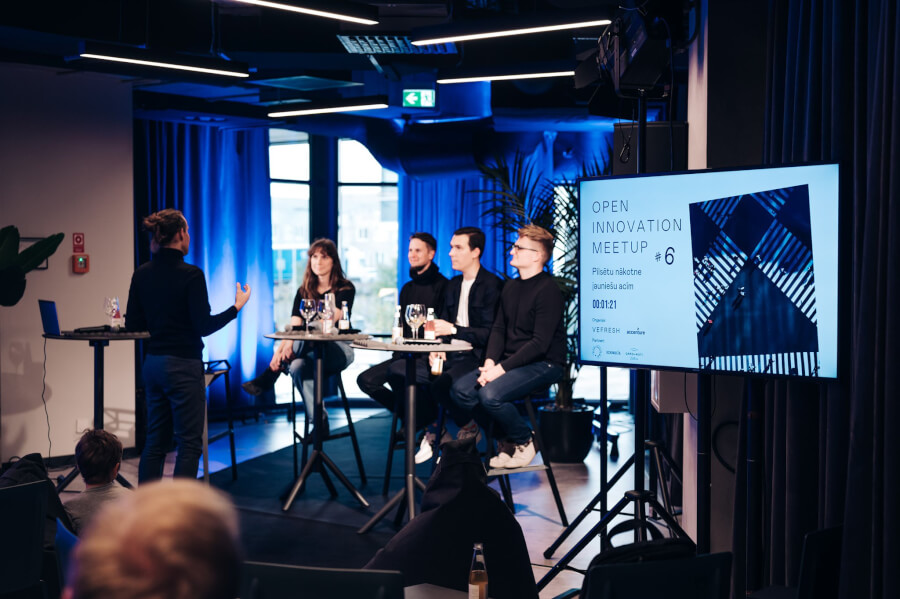Among young people, like other generations, there are “bubbles” of opinion on different values and habits that should be taken into consideration in urban development. In terms of mobility, young people more often prefer more environmentally friendly modes of travel and more often also use shared services, such as the rental of electronic scooters or cars.
This is the conclusion of the Open Innovation debate “The future of cities through the eyes of young people” organized by the innovation movement VEFRESH and Accenture. The participants in the discussion agreed that both the means of transport and the chosen route should be adapted to the existing infrastructure, taking into account whether the person is traveling alone or with his family. The obstacles that prevent even greater cycling activity are the lack of adequate routes, the edges of the pavements not adapted, as well as the difficulties of crossing overpasses and bridges, for example in the vicinity of the VEF – Air bridge. At the same time, the steps taken by the city of Riga towards improving cycling infrastructure were appreciated: the newly created routes in the central area, as well as the participants in the discussion, spoke positively about the respectful attitude of drivers towards cyclists, which allows, especially parents with children, to move safely around the city.
Currently, cycling has become a way of life for an increasingly large part of society and neighborhood movements are also forming to represent the interests of cyclists.
Mārcis Rubenis Sakalovskis, representative of the Tallinn district, Free Riga and Quality of Life Design Institute
Young people use the car more to make longer trips or to go outside Riga during the holidays. Young people choose and use mobility sharing services more actively on a daily basis, for example by renting electronic scooters or cars. It is true that the increase in the number of users of shared services brings to the fore not only the issues of improving the city, but also their integration into traffic and safety.
Perhaps young people are more aware of the costs of personal car maintenance. According to my calculations, if a person drives less than 800-1000 km per month, it is not profitable to keep a personal car.
Christian Carlson, co-founder of OX Drive
Participants in the discussion recognized that there should be a balanced gender balance between mobility and urban planners, so that ideas and decisions are made by men and women in their respective directions, so that the interests of all groups in society are covered. . In the future, young people may be more active in expressing their views, while planners may listen more to the views of young people, as well as be inspired by examples from other countries, to adopt best practices in the city of Riga.
Valts Murāns, representative of the Urban Development Department of the City of Riga, Māra Sleja, TV presenter, model and mother of two children, Mārcis Rubenis Sakalovskis, representative of the Tallinn district, Free Riga and Quality of Life Design Institute, Kristiāns Karlsons, co-founder of Startup OX Drive, participated in the discussion. The discussion was led by the project manager and developer of Accenture Baltics, project manager of the Medical Technology Project Studio LU DF LAB of the University of Latvia and Kaspars Eglītis, personality of Radio NABA.
“The future of cities through the eyes of young people” was the sixth “Open Innovation Meetup” debate organized by Accenture and the innovation movement VEFRESH. “Open Innovation Meetup” is a series of events in which representatives from various sectors are invited to share their experience in the process of creating innovations, from the development of ideas to the experimentation and implementation of solutions. At the events there is an open exchange of views and so far architects, start-up founders, designers, innovation managers, advertising specialists, municipal employees, programmers, bioethics researchers, lawyers, etc. they shared their experiences.

